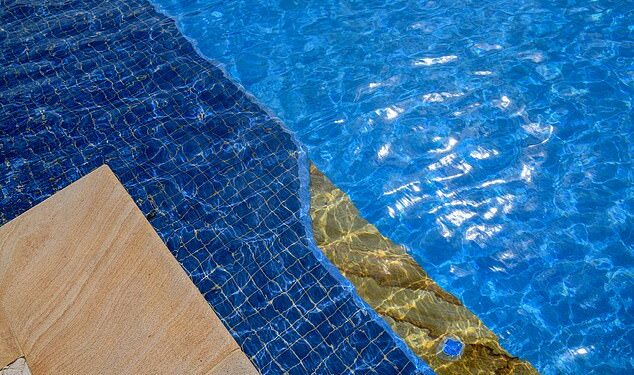A man who broke into a private complex for a swim has launched a legal battle against the property’s owner after breaking his back in a botched dive that left him paralysed from the neck down.
The man, who was aged 18 at the time of the accident in 2022, was taking part in a dangerous ‘pool squatting’ challenge of illegally accessing a stranger’s pool in Toulouse, France when he was injured.
Now, he has taken the apartment’s management company to court to sue for negligence, with the owners still responsible for ensuring the pool’s upkeep under the French civil code.
‘When damage occurs on their property, in this case a swimming pool, the owners must answer to the damage that is caused to the people who injure themselves, even if they entered illegally,’ French lawyer Fabien Gaillard told BFM TV.
The owners of the house claim they told the teenager to leave, and that a sign at the entrance to the pool clearly showed the depth at each end – but he chose not to listen.
‘We’re completely at a loss,’ Alexandra, one of the owners of the property, told La Dépêche. ‘We feel sorry for this young man who hurt himself and shattered his life at the age of 18, but he knew not to jump there and he had no business being there.’

File. Under French law the man may have a case against the owners of the apartment
The owners of the property said that this was not the first time people had broken in to the private pool complex.
She said since it opened six years ago, swimmers had broken in every year, with the ‘pool squatting’ craze only getting more popular.
Anthony, a witness, told La Dépêche that he had seen the teenager and his friends ‘jumping around like idiots’ before the accident.
But while the squatting itself is illegal, squatters are still afforded certain rights under French law.
Article 1244 of the French civil code, the heavily revised descendent of Napoleon’s original 1804 Code, stipulates that owners are responsible for damage, or injury, that occurs in their homes as a result of neglect, even when someone enters illegally.
Owners have a responsibility to prove that a pool is well maintained, keeping invoices of photo evidence and the sort.
These kinds of claims are decided on a case-by-case basis, property lawyer Romain Rossi-Landi told Le Figaro.
‘To avoid this obligation to compensate the squatter, the owner will have to demonstrate that the accommodation was in good condition before the squat or that it was prevented by the squatter from fulfilling its maintenance obligation,’ he said.
Property owners hit by the trend of pool squatting say they have received threats and sometimes violence from brazen young people breaking into their homes.
Patricia, a resident of Toulouse, told La Dépêche that she has been suffering from pool squatters for years.
‘They cut our liner with a cutter two years ago,’ she told the French outlet. ‘It cost us 14,000 euros (£12,000).’
Another, unnamed, told the outlet, ‘a few years ago, one of the co-owners came down to make them leave and he was beaten up.
‘It is common for groups of eight to ten people to make threats’.
‘They don’t care much about video surveillance.’
In 2022, police were reported to be receiving about 10 to 15 calls a day from people reporting strangers invading other people’s swimming pools.
A council hotline in Toulouse recorded more than 200 calls from locals about the problem in a space of just three months.
‘We get gangs of youths who come and try to gatecrash the pool,’ Patrick Lammertyn, a Toulouse resident, told The Times.
‘We often have to call the police, but they don’t always come.’

File. Owners are still liable for damages if a squatter injures themselves in their private home
Pool squatting has increased in recent years in spite of the self-evident risks.
In a slight twist, last month a homeowner in Repentigny, Canada documented how she returned home to find an entire family using her private swimming pool.
Maryse Chaussé was told they had rented the pool out using an app.
She later discovered a former tenant of the house was still renting out the swimming pool online.
‘Is this the first time she’s done this? I can’t say. We’re not always at home,’ she told Noovo Info.







